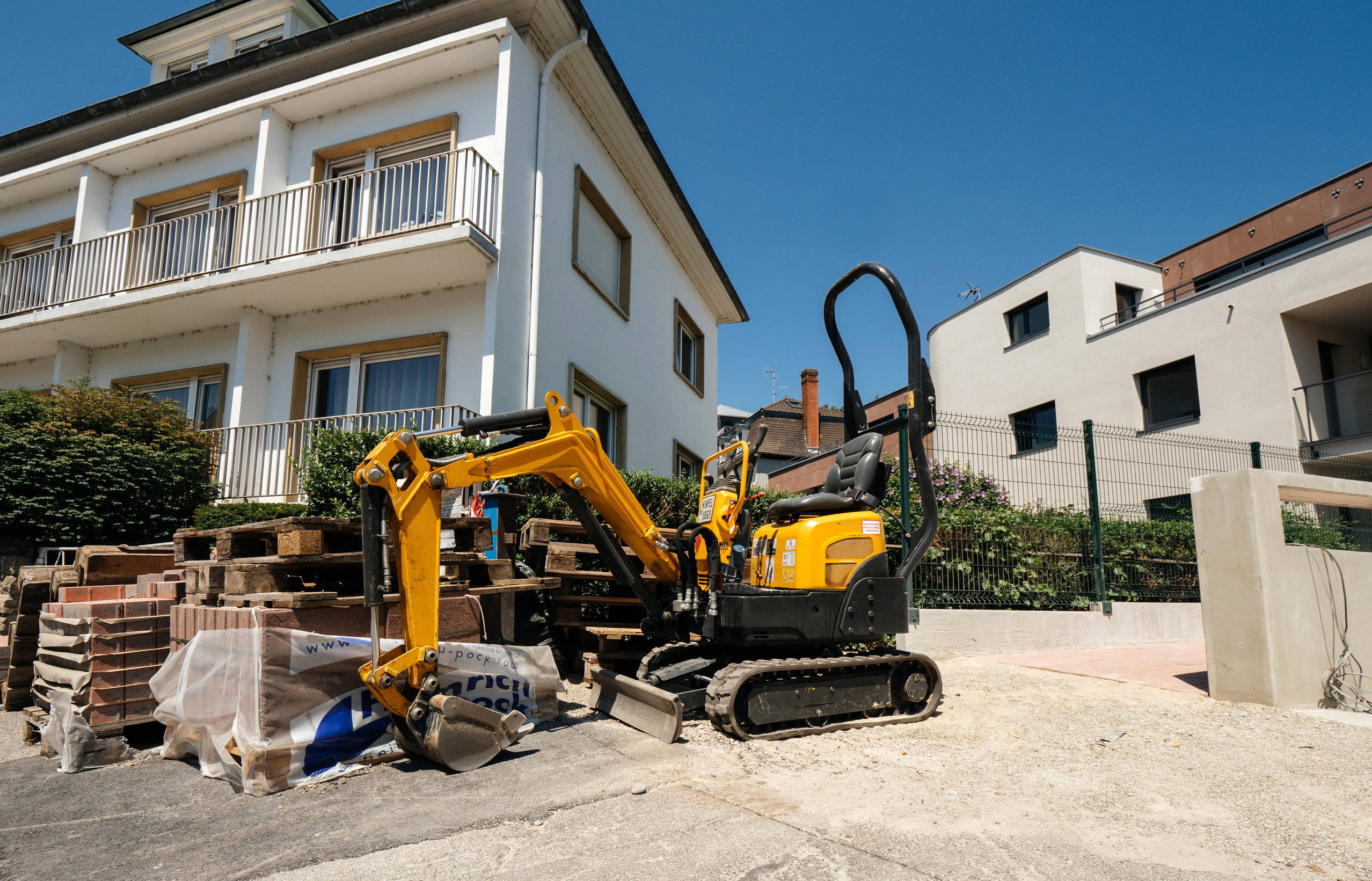What Is A Mini Excavator?
What Is A Mini Excavator?
What Is A Mini Excavator?
Let’s talk about mini excavators.
The mini excavator is similar to a full-size excavator, but it has the added advantage of being able to work in smaller spaces.
Mini excavators also go by other names like Mini Ex, Small Excavator, Mini Digger, Compact Excavator, and Mini Hoe. It doesn’t really matter what you choose to call it, though. A mini excavator is compact enough to get precise digging done.
In the rest of this mini excavator for sale article, we will cover the various sizing categories of a mini excavator, common jobs they are used for, how they compare to standard excavators, and how to choose the right mini excavator for your job.
What are the components that make a mini excavator?
A boom, dipper (or stick), and a bucket connect to a cab that sits on a rotating base (also known as a house). Most mini excavators can rotate a full 360 degrees and are normally fitted with rubber tracks.
What is the size category of a mini excavator?
Mini excavators are categorized as having an operating weight under 9,999 pounds. The smallest mini excavators are able to fit through a doorway. Their bucket sizes can range from 12 to 24 inches and can also be replaced with other attachments to fit the job your tackling, which we will cover later on in the article.
It’s also important to note that quite a few companies label mini excavators as compact excavators and group them together. Compact excavators, though, have a cut-off weight of 18,000 pounds.
What are some common jobs for mini excavators?
A majority of the time, mini excavators are used for light demo, stump removal, material handling, some construction projects, or landscaping.
Mini excavators are often used for:
- Installing pools and hot tubs
- Repairing sewer lines
- Tree harvesting
- Grave digging
- Small building demolition
- Roadside applications
- General digging projects
- Landscaping projects
How do you choose the right mini excavator for your project?
One of the most important things you can do is to plan. Knowing the role the excavator will play on site will help to determine what kind of excavator is needed. What attachments will you need? How long will the job take you? What is the job site environment?
What’s the difference between a mini excavator and a standard excavator?
Mini excavators are smaller and lighter than standard excavators. Like the standard excavator, mini excavators are available with tracks or wheels, depending on the nature of your project.
The size of a mini excavator makes them more popular for high traffic job sites and for working around other equipment types. They are also easier to transport between projects and can drive over parking lots easier than a standard excavator.
Keep in mind that although a mini excavator is lighter and smaller, it is always important to check that a trailer can support the weight.
Mini excavators also have a longer lifespan than a standard excavator because they are typically used for less intense projects.
What attachments can be used with a mini excavator?
Just like standard excavators, mini excavators can be fitted with various types of attachments to increase their diversity. The attachments replace the bucket at the end of the boom.
- Buckets and Couplers
- Ditching / Trench Bucket
- Thumbs
- Rippers
- Rakes
- Hammers
- Auger
- Grapples
If your plan is to slowly grow your company with any, or all, of these attachments, keep in mind that they are all available for rent through equipment rental companies or heavy equipment dealerships until you are able to purchase them. You can also look into financing through one of our featured financing companies.
How much do mini excavators cost?
Prices for new mini excavators can range from $20,000 to $120,000, although most models fall in the $30,000 to $70,000 category.
Used mini excavators typically range from $15,000 to $50,000.
Pricing depends on the age and size of the machine, the type of excavator, brand, power, and the dealer you purchase through.
If you’re ready to take the next step in growing your business, visit our Request Quote page to receive quotes from local dealers, financing companies, trailer companies, and hauling companies directly to your inbox.

